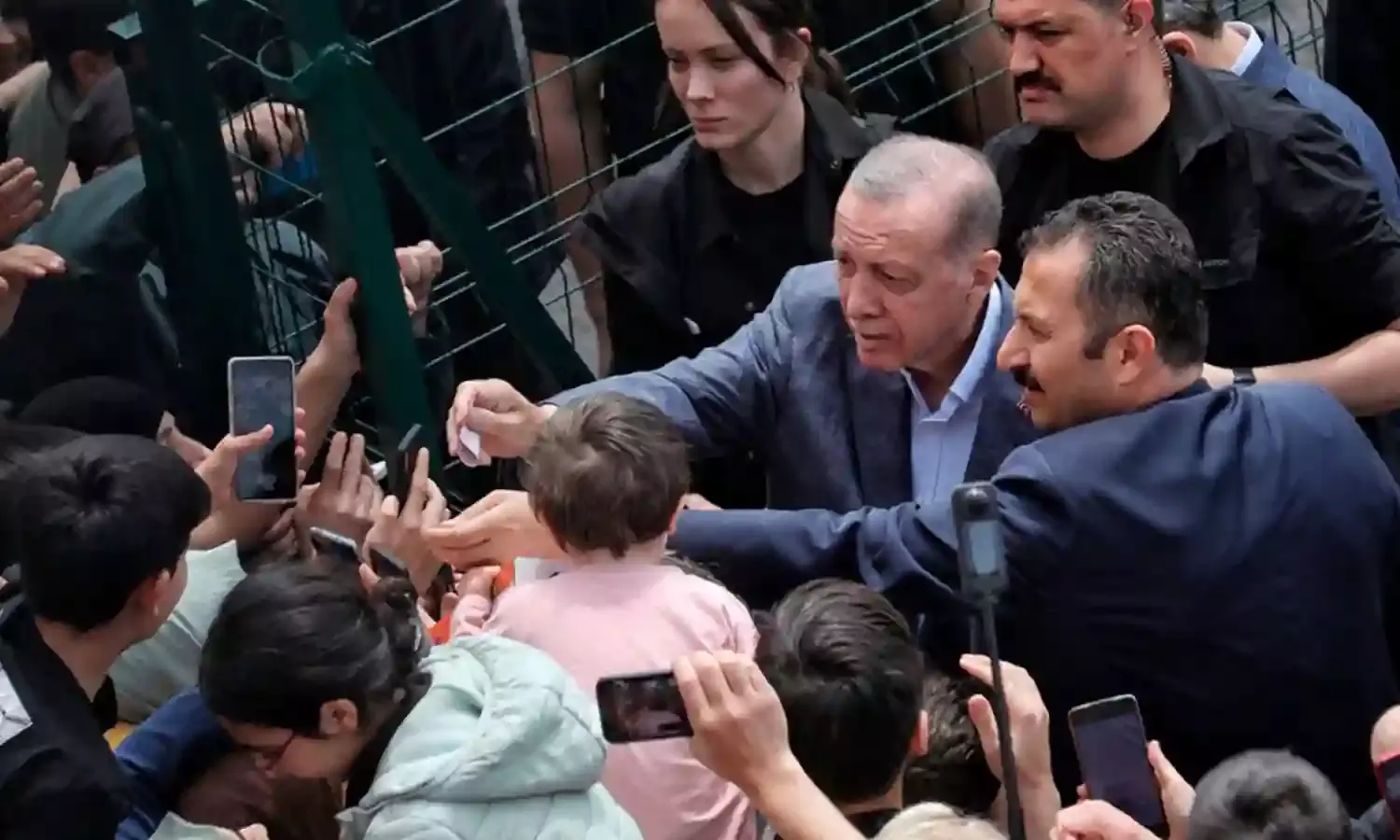Erdogan Is Here To Stay
Challenger Kilicdaroglu was not a clear ideological alternative

With incumbent Turkish President Recep Tayyip Erdogan securing 49.5% of the votes and his main challenger, Kemal Kilicdaroglu, 44.9% in the May 14 Presidential election, Turkiye is to go for a runoff on May 28.
Despite the narrow margin in the vote share, Erdogan is set to win the runoff.
The reasons are follows:
(a) Erdogan is better placed than Kilicdaroglu having come within a whisker of the required 50% in the first round.
(b) Given the ideological expectations the election has generated, Erdogan is more likely to fulfill them given his proven record in this area.
(c) Kilicdaroglu is not an ideological alternative. He has not placed before the people a clear ideological choice. He comes off as a pale copy of Erdogan. People would rather go for a genuine Islamic- nationalistic and anti-western candidate like Erdogan than a confused and lackluster one like Kilicdaroglu.
(d) Erdogan will get the 5.7% of the votes secured by the third candidate Senan Ogan because Organ’s ideological and political platform is closer to Erdogan’s than Kilicdaroglu’s
(e) As the sitting President Erdogan can, between now and May 28, change the playing field to his advantage by bestowing attractive benefits on the voters using his executive power.
(f) As Erdogan’s party has secured a majority in the parliamentary elections held simultaneously on May 14, he can claim that he will have the support of parliament which Kilicdaroglu can’t.
In the run up to the elections, Erdogan had freely tapped state resources to improve his chances, raising civil servant salaries and the national minimum wage and unleashing other government spending in an effort to insulate people from the immediate effects of high inflation, as ‘The Guardian’ pointed out.
Turkiye’s Presidential race was between three main alliances: The People’s Alliance led by Erdogan; the Nation Alliance led by Kilicdaroglu and the Nationalist Movement Party led by Sinan Ogan.
Every one of these alliances is a hodge-podge of ideologies, comprising nationalists, secularists and Islamists. But they are sharply divided on one issue, Erdogan. They either want Erdogan to stay or go.
A Turkish political commentator, Gokhan Cinkara, had said that Turkiye’s policies and ideology would not change even if Kilicdaroglu wins because his grouping is also a mishmash of conservatism, nationalism and Islamism. The only difference is that Kilicdaroglu is relatively accommodative to the West.
Cinkara had warned that a Kilicdaroglu victory would have made Turkiye an unstable State as he might not be able to contain the antagonisms within his diverse coalition as he lacks the chutzpah and ruthlessness of Erdogan.
The other possibility was that if the opposition had won, it would not be able to give a stable government because of the absence of a determined leader like Erdogan. Erdogan might come back to power.
Though Turkiye is a democracy with regular elections and the voting percentage is always more than 80%, the people like to be led by a charismatic strong man like Mustapha Kemal Ataturk or Erdogan.
Manifest nationalism is another requirement. In this sphere Erdogan excels. During the campaign, he stationed a warship for people to visit and feel a sense of national power.
Though Turkiye is a member of NATO ERdogan had defied it and bought the S400 missile system from Russia undeterred by US sanctions. He has taken an ambivalent stand on the Ukraine issue, thereby being a thorn in the flesh for the Western alliance.
Erdogan had also challenged Saudi Arabia’s leadership of the Islamic world and had tried to form an independent grouping comprising Malaysia, Turkiye and Pakistan. It is another matter that he failed to re-establish the Ottoman Caliphate.
Important changes are also taking place in the Arab World sidelining Turkiye. Saudi Arabia has made up with Iran with China’s help and the United Arab Emirates (UAE) is throwing in its lot with the United States (US).
Although his retaining the Presidency is almost certain, Erdogan will have to stem Turkiye’s economic decline marked by skyrocketing inflation. According to Reuters, Turkey's inflation is at 42.5% in 2023 and GDP growth at 3%.
Erdogan's program of slashing interest rates on Islamic grounds to support economic growth, exports, investment and employment, triggered high inflation. The fall of the local currency has triggered a run on gold and people are said to be hoarding US dollars under mattresses.
Erdogan diverts peoples’ attention from economic difficulties by citing Turkiye’s emergence as a regional power. Inflation notwithstanding, he trumpets Turkish industry’s progress in drone, car, and battleship production.
However, the narrow lead in the May 14 election could have a sobering effect on Erdogan. For a man who had swept the earlier elections, the narrow margin should be a source of worry. A dilution of policy is not guaranteed. Given his personality, he might choose to step on the gas to make the best use of the opportunity, limited though it is.



